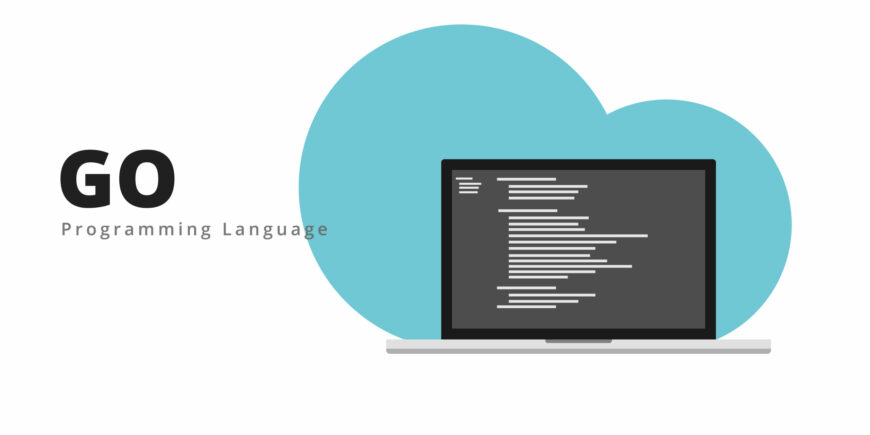What is Artificial Intelligence (AI)?
Artificial intelligence (AI) is the capability of a machine or a machine-controlled robot to accomplish tasks that would normally be performed by human beings. It is a branch of computer science where artificial intelligence engineers study and develop computer systems that can accomplish activities that would ordinarily need human intellect. Artificial intelligence may be capable of speech recognition, decision-making, and visual perception, among other things.
So, Who is an Artificial Intelligence Engineer?
An Artificial Intelligence Engineer is a computer scientist whose goal is to create intelligent algorithms that can learn, analyze, and anticipate future occurrences. Their mission is to develop machines that can reason like a human brain. Regardless of the fact that this is a data engineering job, Artificial Intelligence engineers are rarely tasked with writing the technology that enables scale data sharing. Instead, Artificial Intelligence engineers gather data from a number of sources, generate, develop, and test machine learning algorithms, and then build and implement AI applications using application program interface (API).
Let’s Dive Into the Role of An Artificial Intelligence Engineer
Artificial Intelligence engineers are largely accountable for devising, testing, and deploying AI models utilizing various programming strategies.
While Artificial Intelligence engineers in specialized areas may be responsible for a wide range of tasks, there are a few core responsibilities that anyone trying to break into the sector should be familiar with, including:
- – Using strategies linked with AI thinking and uncertainty to set and achieve goals.
- – Using AI best practices in speech recognition, data processing, data mining, and robotic control applications.
- – Explaining the value of the AI models they develop to a variety of people in the company, including interested parties and product managers
Significance of Artificial Intelligence Engineers
Artificial Intelligence Engineering is a widely growing field and is starting to have an impact on the success of any organization. Artificial Intelligence is being utilized in a number of fields that includes:
Health Care
Many processes in the healthcare industry use a significant amount of time and resources. Organizations can cut the cost and time involved with things like medication discovery with the help of Artificial Intelligence and Artificial Intelligence engineers.
Corporates
Artificial Intelligence Engineers are being used by a growing number of organizations to find useful insights in otherwise unstructured information, such as social networking sites.
Banking
In the banking industry, several companies are starting to employ Artificial Intelligence engineers to learn about their customers’ patterns so that they can spot suspicious and fraudulent behavior more quickly.
Smart Homes
With the help of different technology like IoT, Artificial Intelligence is becoming too relevant. Smart homes are becoming too popular because several devices can be used simultaneously while they perform their specific task. Devices such as bulbs, fans, refrigerators, AC, washing machines, etc run on AI making life easier in a very efficient way.
Artificial Intelligence has become a vital part of today’s life. The following is the list of other uses that have significantly made us trust in Artificial Intelligence for our day-to-day life.
- – E-Commerce
- – Smart Cars
- – Customer Support
- – Virtual Assistance
- – Social Media
- – Surveillance
What Does It Take To Become An Artificial Intelligence Engineer? – A Roadmap
Improve your technical abilities
If you want to learn how to become an Artificial Intelligence engineer, you’ll need to improve your programming skills as well as your software development processes and practices. Make sure you’re well-versed in the following topics, both practically and theoretically:
Coding Languages
Programming is the first skill needed to become an Artificial Intelligence engineer. You’ll require a strong understanding of programming languages like Python, R, Java, C++, and others.It’s crucial to have a firm grasp on classes and data structures. Knowing how to use these tools isn’t always enough. As an artificial intelligence engineer, you can be working on a project where you need to use your hardware knowledge to improve something. Basic algorithms, classes, memory management, and linking must all be familiar to you as an artificial intelligence engineer.
Probability, Statistics, and Linear Algebra
As an artificial intelligence engineer, statistics will be discussed frequently. You’ll need a thorough understanding of linear algebra, probability, and statistics to comprehend and build Artificial Intelligence models like Hidden Markov models, Naive Bayes, Gaussian mixture models, and linear discriminant analysis.
Pseudocodes
You must have a thorough understanding of algorithm theory and also how algorithms function in order to be a great Artificial Intelligence engineer. Understanding how linear regression, KNN, Naive Bayes, Support Vector Machine, and other machine learning algorithms work can make it easier to design machine learning models.
Deep Learning & Big Data
Artificial Intelligence engineers work with massive amounts of data, such as live or real-time production data in terabytes or petabytes. To make sense of enormous data, these engineers will need to be familiar with Spark and other big data technologies. Other big data technologies, such as Hadoop, Cassandra, and MongoDB, can be used alongside Apache Spark.
Business Skills That Are Required
Excellent communication skills
Artificial intelligence developers are frequently tasked with communicating technical information to a diverse group of people with varying levels of technical knowledge. You might be requested to implement and deliver a new AI model to every department in an organization, for example. To explain complicated ideas and concepts in a way that everyone can comprehend, you may need good written and spoken communication abilities.
Solution-oriented thinking
Important data is frequently reviewed and interpreted by AI engineers. You may need to analyze data, create insights, and discuss viable solutions to do this effectively. Engineers in this sector may be in charge of extracting information from massive amounts of data by breaking them down into smaller chunks.
Industry knowledge
Most challenges relating to an organization’s operation can be solved with successful artificial intelligence projects. Business intelligence enables you to transform technical ideas into viable business projects. You can strive to obtain a fundamental awareness of how organizations operate, their target markets, and market rivalry regardless of the industry you work in.
Ability to think critically
You may need to develop a multitude of different answers to a single problem in order to come up with novel AI models and technological solutions. You may also be required to swiftly analyze available facts in order to draw reasonable conclusions. While many of these talents can be learned and developed while pursuing your undergraduate degree, you can seek out additional experiences and chances to further your ability in this area.
Certification
Having a valid certificate on the above-mentioned skills can boost your profile as an Artificial Intelligence Engineer. Getting a certification in Data Science, Machine Learning, or Artificial Intelligence is highly recommended for becoming an Artificial Intelligence engineer. These qualifications will improve the value of your portfolio and help you get an in-depth understanding of Artificial Intelligence topics, as well as raise your income to match that of an Artificial Intelligence Engineer.
Here are a few courses that might help you spur your profile on your journey to being an Artificial Intelligence engineer:
- AI for Everyone (Beginner Level)
- IBM AI Engineering Professional Certificate (Intermediate Level)
- CertNexus Certified Artificial Intelligence Practitioner Professional Certificate (Professional)
Artificial Intelligence Engineer Salary
Artificial intelligence engineers are in high demand, with several paying well into the six figures. The actual figures will be determined by a variety of factors, including employment responsibilities, sector, expertise, education level, and geographic region.
According to Indeed, a research artificial intelligence engineer will earn around $92,938 per year, while a machine learning engineer will earn around $150,183. The typical compensation for an artificial intelligence engineer, according to Datamation, is between $100,000 and $150,000. On the other hand, Artificial Intelligence engineers make an average of $171,715 a year, with the big earners receiving more than $250,000.
Experts in Artificial Intelligence Use These Skills Every Day
Artificial intelligence is a field that is based on science. The endeavour to utilize robots to mimic the human brain demands a certain level of comprehension. As a result, the abilities that artificial intelligence engineers use on a daily basis will differ based on the type of project you’re working on.
Consider the following Artificial Intelligence engineer jobs and their associated skills:
AI algorithm developer
This individual may be in charge of converting AI research into mathematical equations that can be implemented using hardware and software. This may necessitate a high level of inventiveness and problem-solving abilities.
AI academic researcher
To come up with novel or unique techniques to test machines’ real-world viability, an artificial intelligence academic researcher may need strong hypothesizing skills.
So, we can say that artificial intelligence engineers require different skills according to their job of interest. But the basic necessary skills are mentioned above in the section.
Top Firms that are hiring for AI positions
- Microsoft
- Intel
- Amazon
- Accenture
- Deloitte
- Nvidia
In-Demand Career options for Artificial Intelligence Engineers
Machine Learning Engineer
As a Machine Learning Engineer, you’ll write programs and algorithms that allow machines to act without being told what to do. You will make it possible for computers to learn with no need for programming. A Bachelor’s Degree in a related discipline, such as Computer Science, is required. A graduate degree will enable you to gain extra knowledge and competence in preparation for managerial and senior positions.
Business Intelligence Developer
You will be responsible for designing, installing, and maintaining BI interfaces as a Business Intelligence Developer. You’ll need a lot of knowledge in software engineering, databases, and data analysis to do this. To start your career as a Business Intelligence Developer, you’ll need at least a bachelor’s degree in computer science. A Master’s Degree will undoubtedly assist you in advancing your profession.
Research Scientist
Applied arithmetic, machine learning, deep learning, and computational statistics are all skills you should have. Expected to have a master’s degree in computer science or a related subject, as well as relevant experience.
Engineering degrees required for Artificial Intelligence
Engineering courses at the graduate, post-graduate, and certification levels allow you to focus on AI, machine learning, and deep learning. Engineering degrees in IT, computer science, and data science are among them. B.Tech (Bachelor of Technology) in Artificial Intelligence, B.Tech in Computer Science Engineering, are some of the most popular degrees and certificates. Strong knowledge of programming languages, applied mathematics, algorithmic reasoning, deep learning, and neural networks may be required of AI engineers.
Summary
Artificial intelligence engineers are problem solvers who help people understand how computers work. They can work in a number of data mining, data analysis, research, design, and programming professions. AI’s use may increase tremendously in the future, and Artificial Intelligence engineers may have a plethora of professional options.
I hope this article gave you a complete understanding of the field of Artificial Intelligence!








